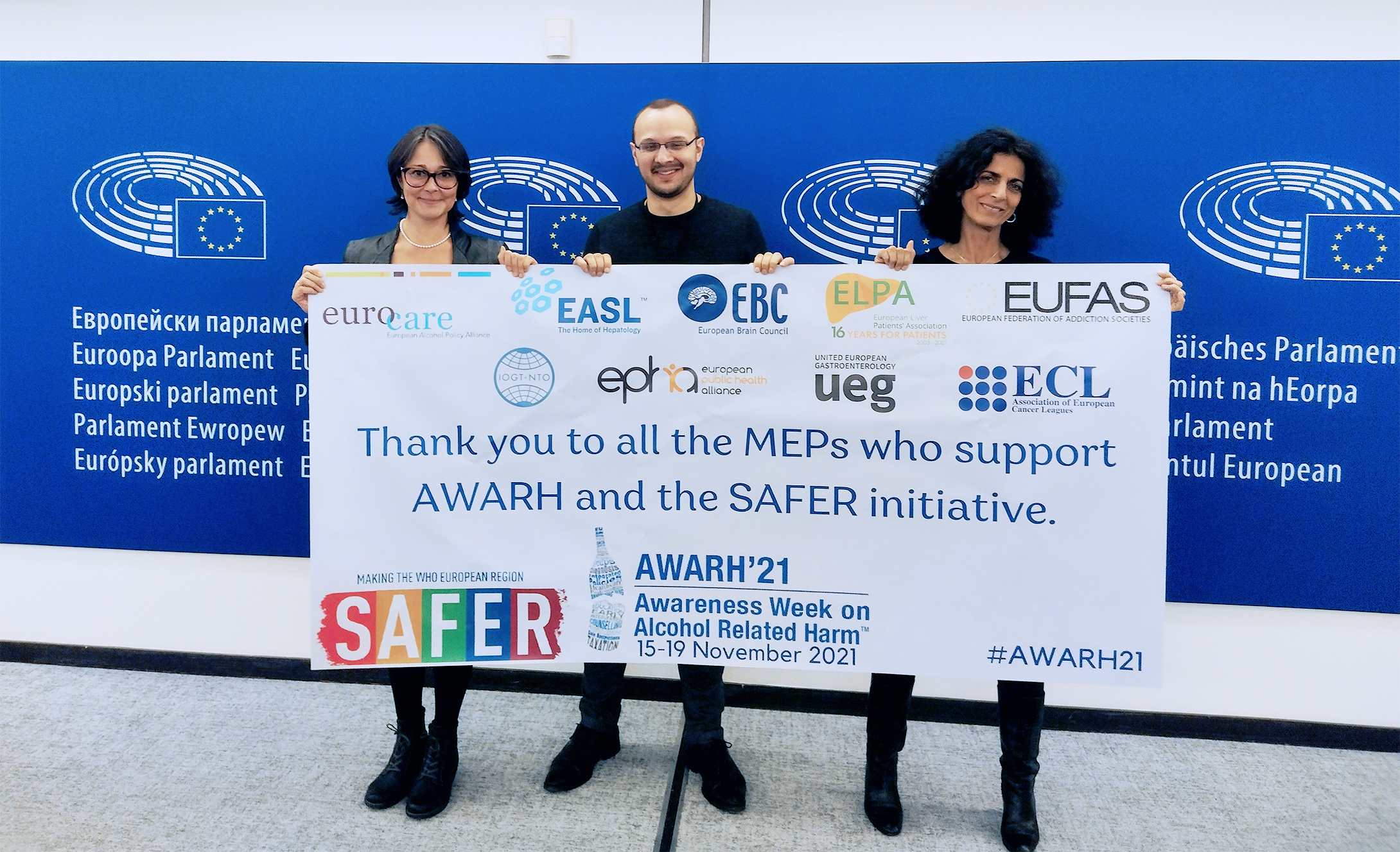INTRODUCTION
Alcohol consumption across the WHO European Region is higher than in any other areas in the world. Alcohol is not only improperly regulated, but often also encouraged by societal pressure and by the harmful intrusion of the alcohol industry in the digital world. Many are still unaware of the detrimental effects of alcohol consumption on health, society, and the economy.
Alcohol is often treated as an ordinary commodity, but this view should be challenged. In fact, alcohol is a toxic and psychoactive substance with dependence-producing properties. A causal link has been established between alcohol consumption and a wide range of diseases, including mental and behavioural disorders. Alcohol is then strongly associated with at least 7 types of cancers:
- Oral cavity;
- Oropharynx;
- Larynx;
- Oesophagus;
- Liver;
- Colorectum;
- Female breast.
When it comes to cancer risk, the scientific literature clearly indicates that there is no safe level of alcohol consumption. In fact, the risk starts at low levels of drinking and increases substantially the more alcohol is consumed.
Press release
LET’S MAKE OUR LIVES SAFER AND STICK THE MESSAGE TO THE BOTTLE
‘At the EU level, the road to labelling alcoholic drinks has been long and fraught. The first attempts were made in the late 1970s, resulting in a deadlock at the Council level. In 2011, Regulation (EU) No 1169/2011 was adopted, guaranteeing that food and beverage products across the EU would be provided with a list of ingredients and a nutrition declaration in the form of a label. However, alcoholic beverages containing more than 1.2% by volume of alcohol were exempted from this obligation. This is why, unlike other products, there is no consistent labelling on ingredients, allergens and calories on alcoholic products. With alcohol’s current exemption, how can consumers make an informed choice? In 2017, the European Commission adopted a report concluding that there were no objective grounds for this exemption. Last but not least, in February 2021, the Commission published the Beating Cancer Plan, which proposes limiting the online advertising and promotion of alcoholic beverages, including health warnings on labels, and finally the mandatory labelling of ingredients and nutrient content on all alcoholic beverages. Eurocare regrets that, once again, Big Alcohol has responded with a raft of complex pledges and proposals and has opposed the straightforward system which applies to other products. In our view, the solution is simple. Alcohol should be treated like any other product on the shelf.
Eurocare calls on all policymakers to cut through the industry smokescreens and to meet consumers’ concerns and demands. Essential information (such as calories or allergens), as well as health warnings, should be provided in such a way so that it can be easy for consumers to see and understand them.’
Florence Berteletti, Eurocare’s Secretary General


Florence Berteletti (Secretary General of Eurocare), Basile Ghesquiere, and Belgian MEP Maria Arena
